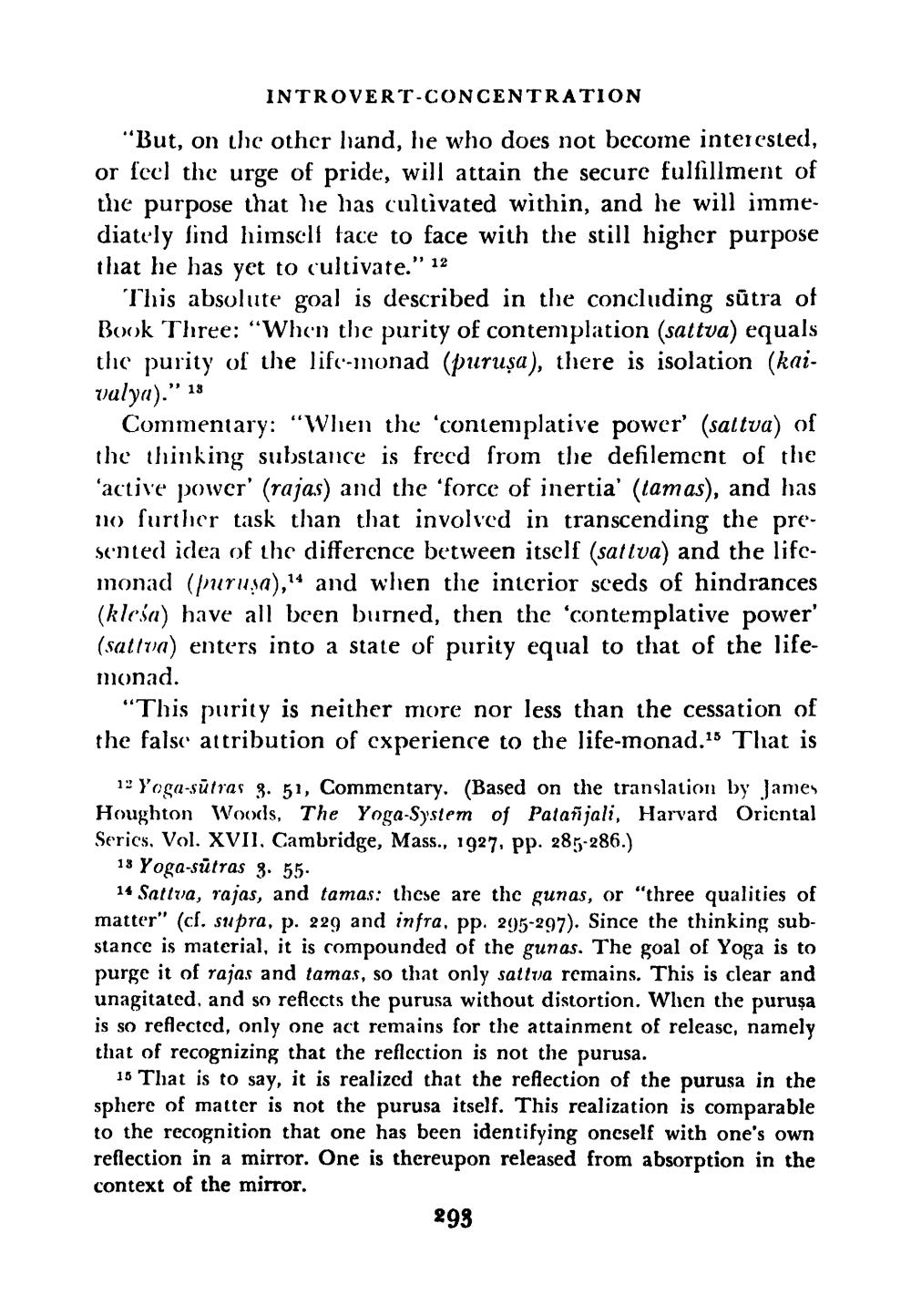________________
INTROVERT-CONCENTRATION “But, on the other hand, he who does not become interested, or feel the urge of pride, will attain the secure fulfillment of the purpose that he has cultivated within, and he will immediately find himself face to face with the still higher purpose that he has yet to cultivate." 12
This absolute goal is described in the concluding sūtra of Book Three: “When the purity of contemplation (sattva) equals the purity of the life-monad (puruṣa), there is isolation (kaivalya).” 18
Commentary: "When the contemplative power' (saltva) of the thinking substance is frecd from the defilement of the 'active power' (rajas) and the 'force of inertia' (tamas), and has no further task than that involved in transcending the presented idea of the difference between itself (sattva) and the lifemonad (purusa),14 and when the interior seeds of hindrances (klesa) have all been burned, then the contemplative power' (sattva) enters into a state of purity equal to that of the lifemonad.
“This purity is neither more nor less than the cessation of the false attribution of cxperience to the life-monad.15 That is
12 Yoga-sūtras 3. 51, Commentary. (Based on the translation by James Houghton Woods, The Yoga-System of Patañjali, Harvard Oriental Series, Vol. XVII, Cambridge, Mass., 1927, pp. 285-286.)
18 Yoga-sūtras 3. 55.
14 Sattva, rajas, and tamas: these are the gunas, or "three qualities of matter" (cf. supra, p. 229 and infra, pp. 295-297). Since the thinking substance is material, it is compounded of the gunas. The goal of Yoga is to purge it of rajas and tamas, so that only sattva remains. This is clear and unagitated, and so reficcts the purusa without distortion. Whicn the puruşa is so reflected, only one act remains for the attainment of releasc, namely that of recognizing that the reflection is not the purusa.
16 That is to say, it is realized that the reflection of the purusa in the sphere of matter is not the purusa itself. This realization is comparable to the recognition that one has been identifying oneself with one's own reflection in a mirror. One is thereupon released from absorption in the context of the mirror.
299




